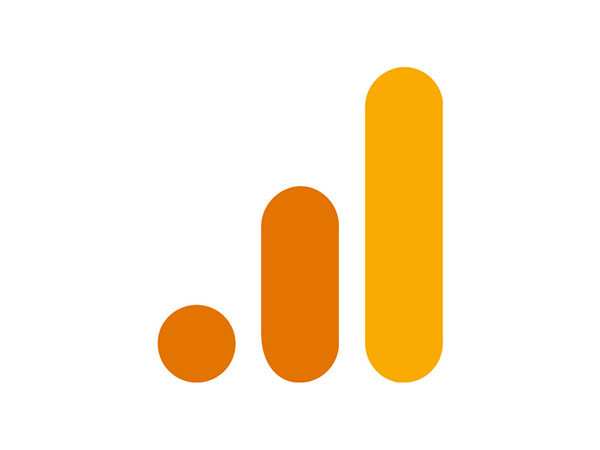Hotel Web Statistics
Analytics: which data are important for a hotel website?

It is no secret that direct bookings increased last tourist season: a golden opportunity to boost sales from our website.
So let's try to understand which performance indicators to consider when evaluating a hotel website using Google Analytics.
Audience
Google Analytics provides a lot of data on the audience browsing our site: location of origin, age group, device used and more. Believe me: investing time in analysing this data could help us to orient our business strategies correctly. A practical example. If we analyse the analytics data of our partner hotels and compare it with the pre-pandemic period, we will notice, in addition to the obvious difference in geographical origin, a significant change in the age groups of our visitors. An insignificant fact?
Conversion ratio (obviously)
Let's be practical: if our hotel has a site that generates direct bookings, if I were a hotelier, I wouldn't worry too much about it. But if, on the other hand, the site is relegated to the status of a web corpse, I would make it a priority issue, especially now. Of course, it is not necessarily the case that the lack of conversion depends exclusively on the website: think of an excellent website with a completely wrong sales strategy.
Quantity and Source of Traffic
A website can be beautiful and performing but without traffic it remains a dead site: it should be more or less on a par with a shop window and a shop with beautiful windows but few customers is destined to close.
In order to measure the amount of traffic, Google provides us with the number of users and the number of sessions that have visited our site in a given period of time. The origin of traffic is more complex issue: we need to analyse the types of traffic
Organic: this basically comes from searches carried out spontaneously by a user. Let's imagine our potential guest typing the words "Hotel in Rome", viewing all the links in the results and then clicking on our site. In wich position we will be visible, is a different (and more complicated) matter. The advantages of organic traffic are undeniable: it is free and it is qualified because users have most likely found what they were looking for.
Paid Traffic: this is the traffic generated, for example, by advertising campaigns. There are many types of paid advertisements and they can be aimed at acquiring customers, for example even only through Brand Protection operations. In this regard, I would like to give a little advice: if you decide to invest in advertising, contact a professional to avoid spending money unnecessarily.
Direct Traffic: this comes from a visitor who has written our exact address in the browser address bar. This happens, for example, for companies that work a lot on Brand Awareness or simply because they have already visited our site several times and remember the address. In any case, Direct Traffic is always a good result (also because it is free)
Mail Traffic: This is traffic that comes from email marketing campaigns. Today, almost all hotels have a CRM, but they often overlook the fact that this tool should also be used to generate this type of traffic and not just to finalise quotation.If you are interested in learning more about CMR for a hotel, please read this article.
Social Traffic: this is traffic made up of users who arrive on the site via social networks. Although it is almost unthinkable for a hotel not to be present on social networks, I have rarely seen significant percentages of this traffic. However, these are channels capable of generating traffic and channelling it to the site free of charge, and therefore absolutely useful
Behaviour
Having overcome the obstacle of obtaining an adequate number of visitors, we must now study their behaviour. Having a large number of visits lasting only a few seconds is a clear negative indicator: let's introduce the concept of engagement. How many pages do our users visit? What are the exit pages (where the user essentially ends the browsing session)? But also how long do they surf on a page or within the site? Rather than browsing today, users surf the net quickly and in a matter of seconds decide whether our content is deserving a visit. In our specific case we are talking about hotels and we cannot avoid mentioning the importance of photography in the evaluation process of a potential guest who has never stayed with us: in most cases it will be a photo that will guide his choice. If you are interested in learning more about hotel photography, I recommend reading this article. And then there are the contents: also in this case my advice is always to turn to Copywriting professionals. In any case, if you want to study user behaviour on your site, there are also tools such as, for example, Hotjar.
Velocità
Everyone has abandoned a site because it is slow: frustrating navigation experiences are not well tolerated by users. Often overlooked, the speed of your site is one of the most important factors in its success: page loading speed and the number of quits are inversely proportional.
Analytics helps us to understand whether the problem of slowness is generalised or perhaps to be identified in certain specific pages. This is not the place to delve into all the causes of slow loading, also because the phenomenon is often due to several causes. However, if you are interested in some more technical details, I invite you to read this article, where one of the possible causes of low performance is examined: the site code.
Conclusions
When it comes to data analysis, the subject is always very broad. Having the data from Analytics is only a starting point: you have to skim it and understand the keys to its interpretation. The positive aspect of this type of analysis lies in the easy verifiability of the performance we have been talking about: information that should guide us more and more to invest continuously and appropriately in our hotel website.
If you are interested in learning more about this subject or in exchanging points of view, please contact us: we will be happy to do so as always.


“
GIANGIACOMOCESARINI
28-04-2021 alle 07:10:02
Sempre chiaro ed efficace.
Saluti
Giangiacomo